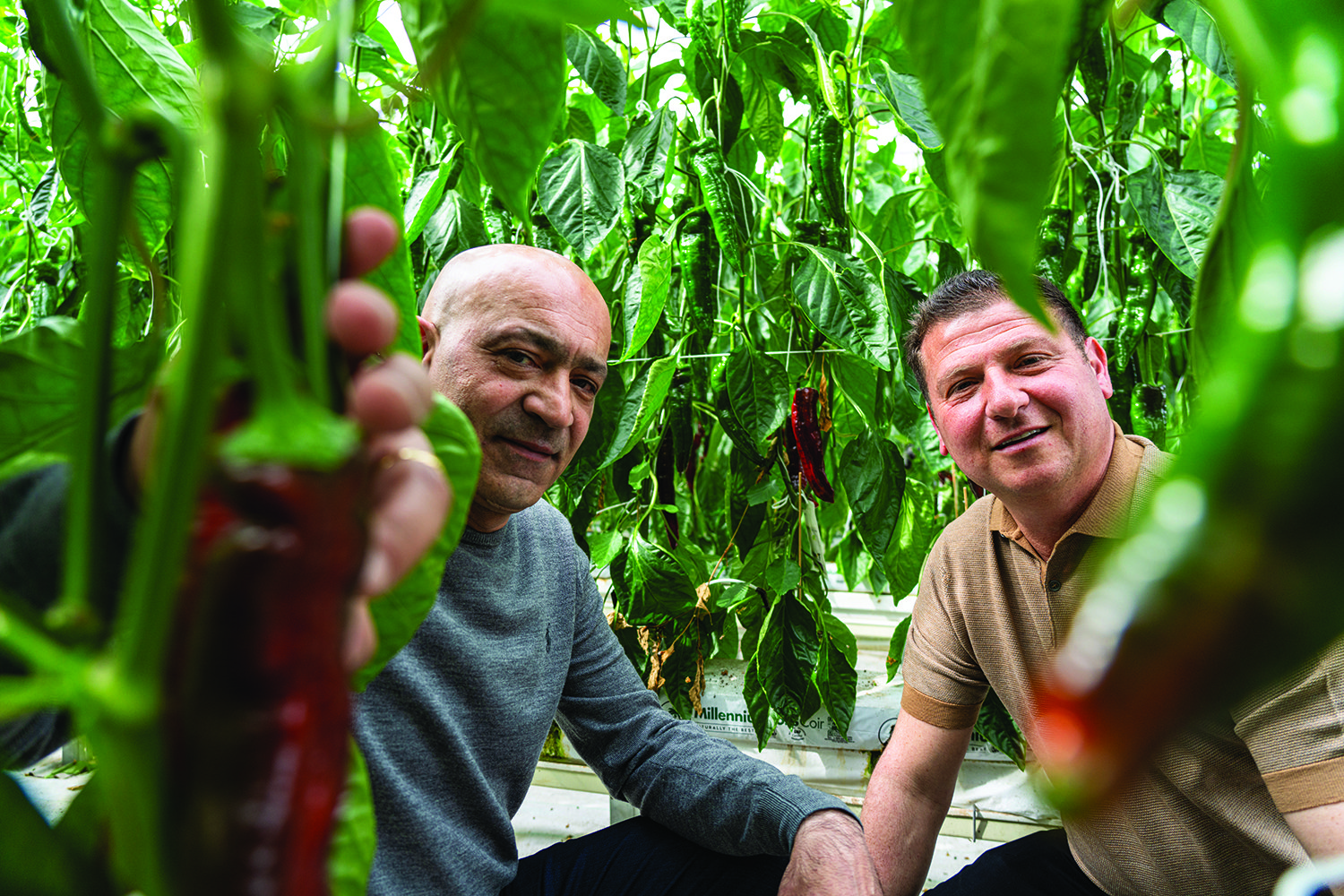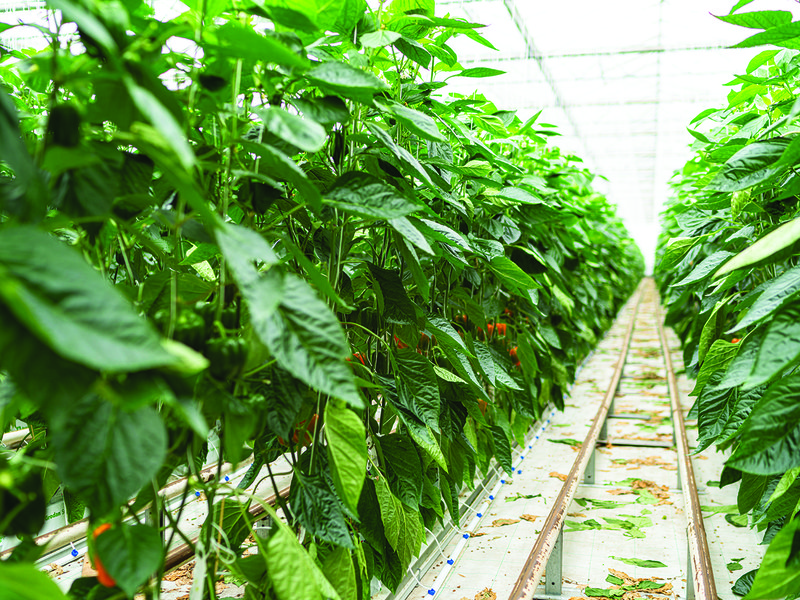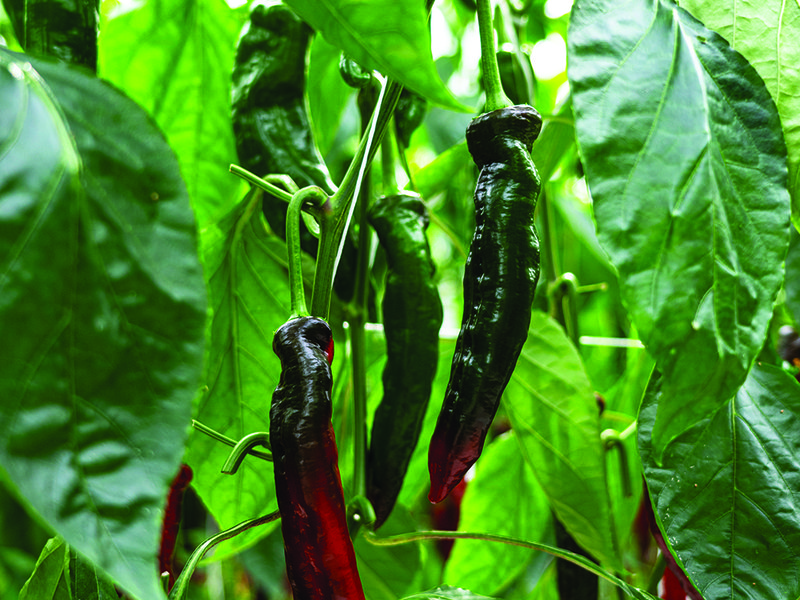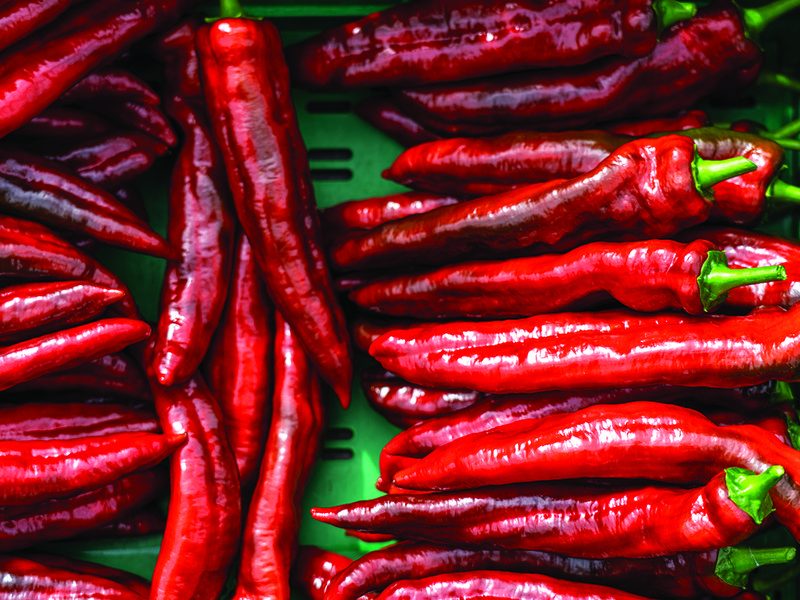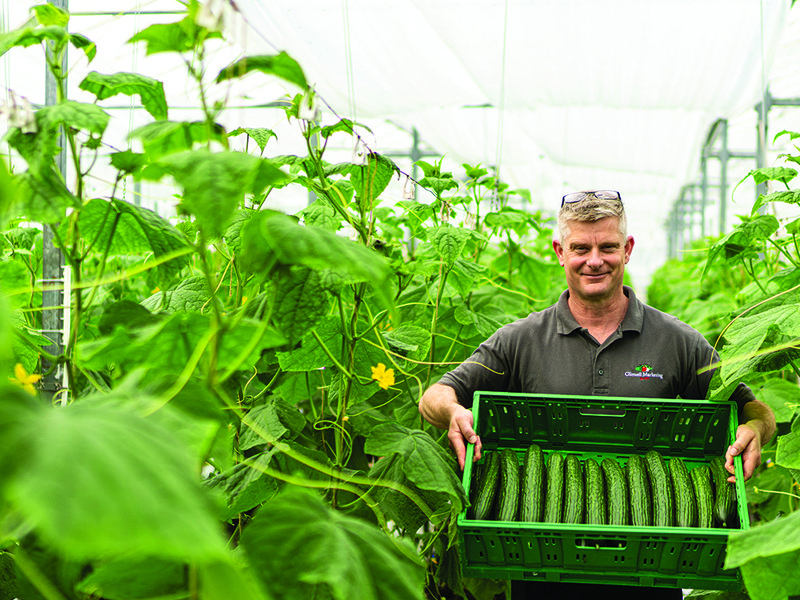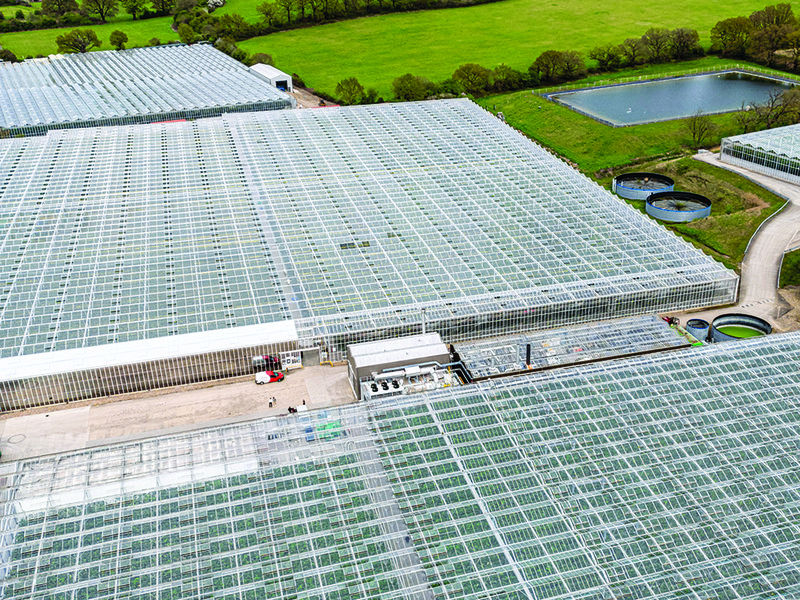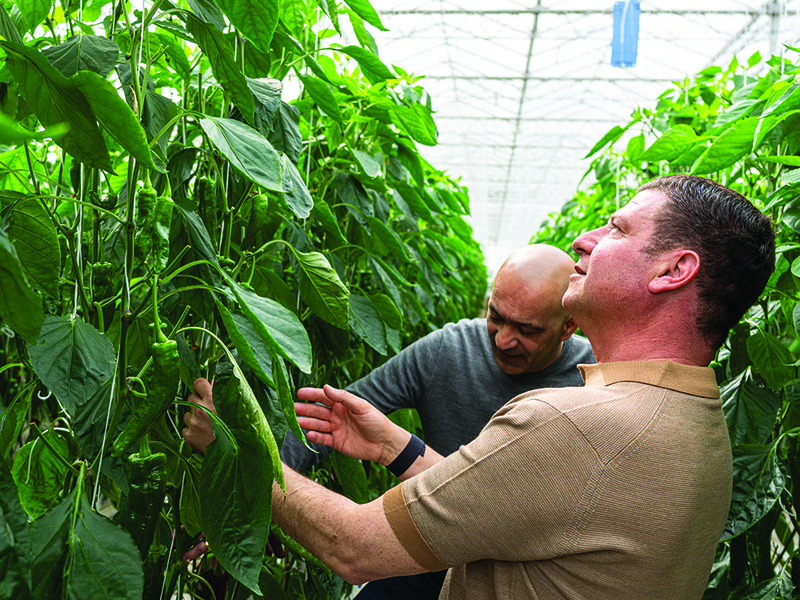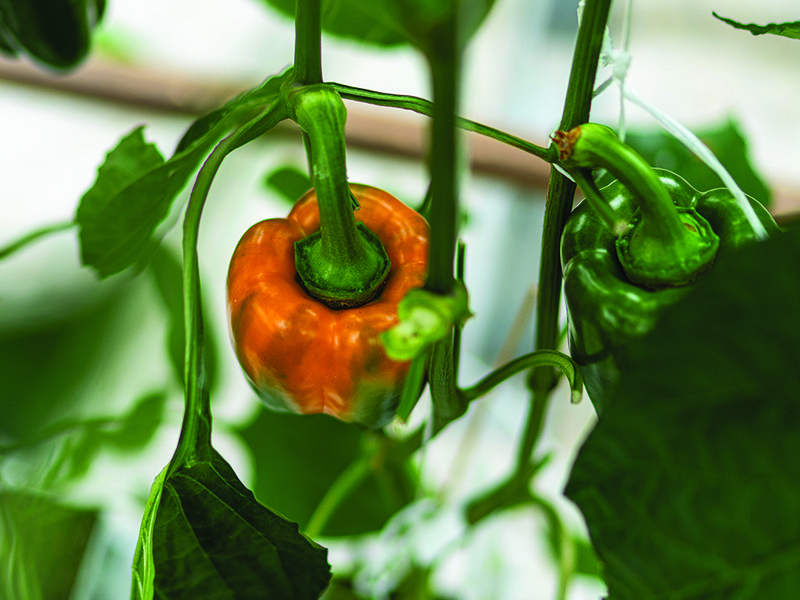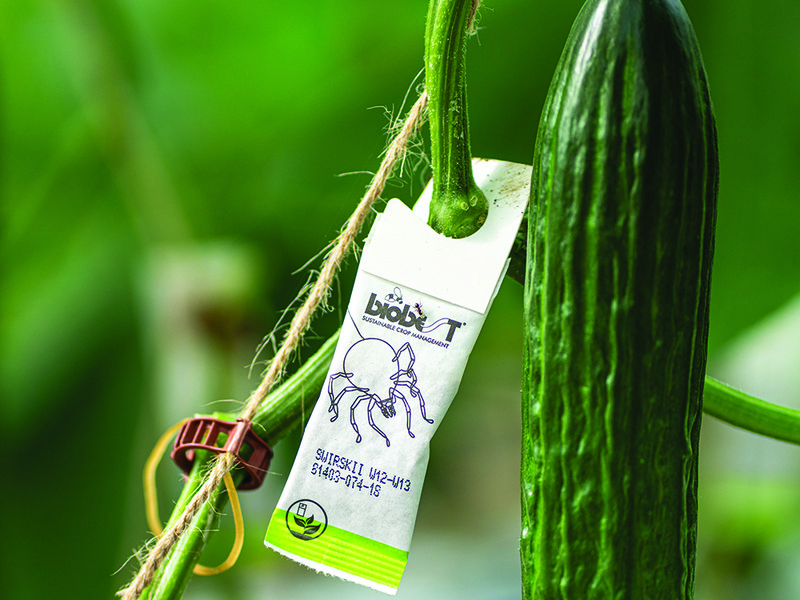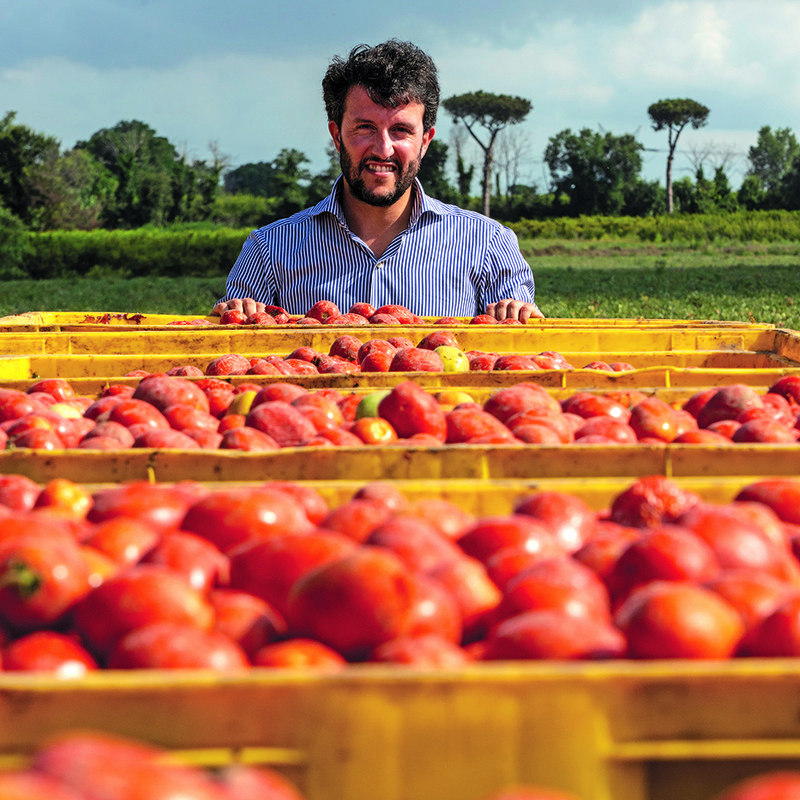In the decades after the Second World War, waves of young Sicilians abandoned the Mezzogiorno for better prospects in the factories and wet green fields of England’s Lee Valley. Joe Colletti’s father was one of them, and Sam Cannatella’s another. Colletti Senior arrived in the UK as a boy of 13, set to work on local farms to help his family, and soon bought his first small plot of land, eventually joining forces with Cannatella Senior to purchase a much bigger site at Smallford in 1977.
One handled the growing, the other sales and operations, and together they built their business, Glinwell, into a major producer of fresh tomatoes, peppers and cucumbers for retail partners around the world. Almost 50 years later, their two sons now fill the same respective roles within the company, both fathers having passed away within a couple of months of each other back in 2010.
“Sam and I have been in the trade from a young age, so we took it on and developed it further,” says Joe, remembering the days when they used to make their own plants in the freezing cold. “You’d have to steam the ground every year, or you’d never get the crop growing.” He is speaking amid a sunburst of colours within one of the company’s vast greenhouses. The long British cucumber-growing season has been underway since February and the air inside carries the fresh scent of that harvest, with the first fragrant peppers and tomatoes of the spring now just coming through at the time of our visit in early April.
“Many of these will be shipped out to Spinneys,” says Joe, pointing out a rich red variety of Palermo pepper by way of example. “We do all our own growing, packing and distributing,” he tells us, “which means that we’re in charge of the whole supply chain, and that makes it very important to find the right partners to sell our product. It’s all about quality and Spinneys is a great customer who appreciates that quality.”
The Glinwell domain now extends over some 100 acres, spread between five separate sites in England, plus another 450-plus acres at a Spanish production division that keeps up supplies through the winter months to help ensure a year-round operation. And while there’s not much to be done about the weather back home, high-tech glasshouses effectively protect the plants from the worst of it. “You can’t get the same light as Southern Spain,” says Joe, “but you can create your own climate, and control everything else that affects a crop.”
Matt Simon, head of growing at Glinwell for more than 20 years, talks us through the holistic systems by which irrigation, temperature, humidity, ventilation and air circulation are carefully managed to cater for each individual plant according to its needs. Process-wise, he says, there is less difference than there used to be in the treatment of “conventionals” and “organics”, except that the former are grown in spun-woven slabs of volcanic rock, and the latter in cultivated soil. Inaugurated in 2004, the organics range has since occupied the tower nursery, on the same five-acre family farm that Joe’s father bought at the age of 17.
“Which makes it a bit more special,” says Matt. “And the grower there has spent a lot of time and effort getting that soil to a really live status.” What this means in practice is using all-natural fertilisers and byproducts to stimulate activity, as well as introducing natural predators such as mites and parasitic wasps to neutralise crop-hostile pests, and bringing in hives full of bumblebees to pollinate those plants that benefit most.
“Cucumbers are generally self-pollinating,” says Matt, “but with peppers, tomatoes and aubergines you tend to get the best quality when bees visit the flowers, so we input them throughout the season.” All that natural activity only increases biodiversity and helps toward sustainable land management. Huge glasshouses can be “very heavy on energy”, he admits, especially where they bury heating loops beneath the soil so that roots develop as early as possible in the growing season. “So, we do what we can
to minimise our usage.”
The best possible gas-fired boilers, for example, extract C02 and push everything else back through the pipe works for reuse by the crop. “Virtually nothing goes up the chimney, and there are next to no emissions.” And when it comes to water, even the organics have their own collection system. “We apply what we need for the plants and any runoff gets cleaned, pasteurised and put back through that system, which also minimises fertiliser inputs and soil-borne contamination, and helps to improve the local environment.”
Efficiently and sustainably as the business now runs, the owners are still driven to marvel at what their fathers started. “It’s funny when you think of it,” says Joe. “This whole packhouse industry we’ve got in this area was almost all built by Sicilians.” Funny, too, that some of the freshest, healthiest staples of a Mediterranean diet are today sent out to Spinneys from the depths of a rainy British valley.

Produce commercial manager
Neil Gibson says
Glinwell is important to us at Spinneys as their growing philosophy centres around taste, eating quality and care for the environment, rather than just yield. Their organic cucumbers are delicious – and this is because their higher dry matter gives them slightly more crunch and great depth of flavour. The Palermo peppers are particularly sweet. Look out for their delicious San Marzano tomatoes in our SpinneysFOOD packaging, too.
